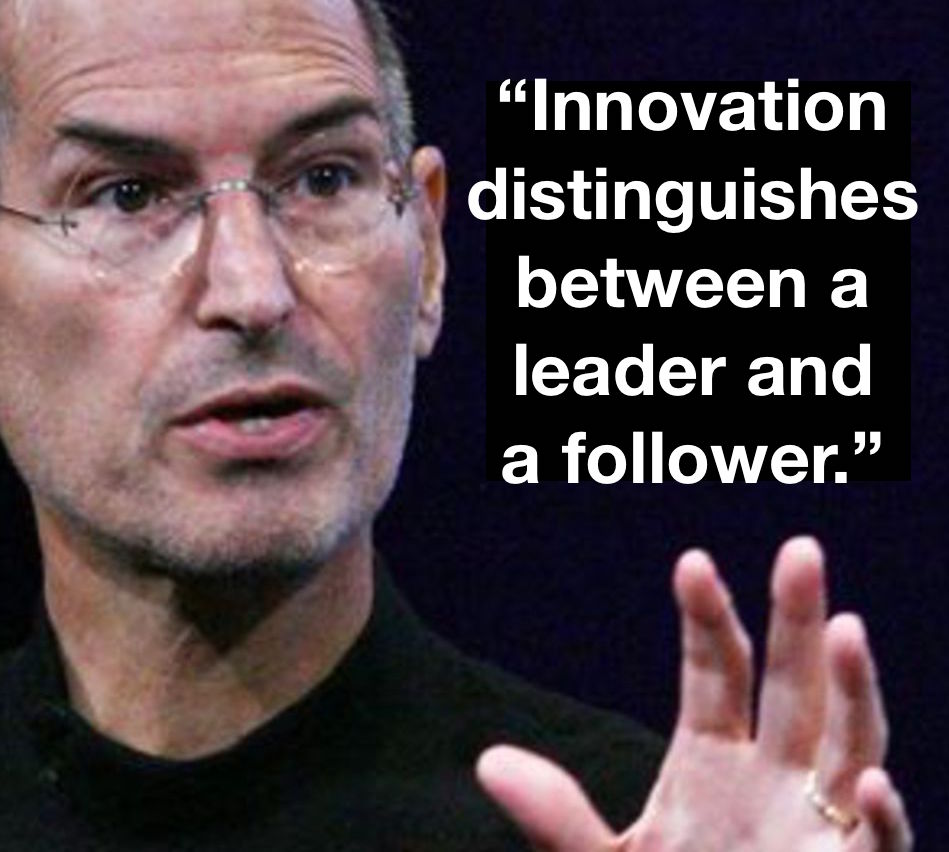I am passionate about digital transformation and innovation, and I believe...
"...organisations and agencies that consistently explore culture and innovation, as a part of their business strategy, will realise significant returns"
Innovation is about seeing the dots and connecting them. It’s about deeply understanding the client’s business problems and together developing solutions that solve the problems to generate growth.....However, the fundamentals need to be put in place.
From my experience, there are 5 key elements that contribute to transforming a stagnant organisation or agency into a dynamic, thriving, and evolving place to work.
#1. Experiment, Fail, Learn, Repeat

If there is one quality that deeply impacts innovation and digital transformation projects within all businesses, it is the ability to learn! Many lack this quality in spades, chasing or waiting for the next brief from the client and diligently and carefully responding point-by-point. Innovation simply CANNOT exist in an environment that is not receptive to idea sharing and open discussion – ensuring natural ideation takes place. This learning goes hand-in-hand with a willingness to fully embrace collaboration
Businesses that have become stagnant may have fallen victim to a resistance to change, sit within a siloed structure, and may have forgotten it’s ok to make mistakes – as long as you learn from them, and be willing to share this learning across the firm – then innovation can flourish.
* Note: the mug was 'borrowed' and is available from @StartupVitamins
#2. The Attitude Adjustment
Any attempt by management to create change must come through a culture that presents an open, honest, and collaborative work environment and that encourages sharing and the exploration of new ideas and concepts.

Cultures can be incredibly hard to shift, but a culture can also change from dormant to energetic and innovative overnight, literally. Being fearless has driven some of the most creative innovations in our time.
Planet Innovation has spent enormous effort recruiting entrepreneurial thinkers. "We look specifically for people with deep technical expertise coupled with broad commercial acumen. Once on board we mentor our staff to seek diverse experience, share their challenges and champion their ideas" said Stuart Elliott, CEO at Planet Innovation. This key ingredient to an innovative culture, "people" saw Planet Innovation being named Australia’s Most Innovative Company for the second time in three years by Fairfax’s BRW, Australia’s premier business publisher.
#3. Trust Culture

For any kind of innovation to exist, staff must feel as if they are part of a culture in which it is safe to share their ideas and where they are valued for their perspective. We all have different approaches, needs and personalities – trust comes when your teams feel that their needs are being met and their voices heard. Once trust is established, the ability to experiment and communicate, move across boundaries, and create a highly dynamic environment will be imminent.
#4. Celebrations
In order for any business to experience innovation, there must be a fundamental importance placed on employee recognition – to reward and recognise those that have put in the effort. This does not always need to be money and bonuses. The new employee of today wants their “15 minutes of fame”, and simply recognising them in front of their peers at the next staff meeting might do it. Wins should be celebrated, the added benefit is that it generates healthy competition to encourage others, and it also generates greater knowledge and awareness in the broader team.
#5. Experiment, Experiment, Experiment
Experimentation and failure are key contributors to innovation

Any organisation that is looking to innovate, especially as it focuses on the year ahead, will need to give their staff the freedom to try new things and shoot for the stars. “No” needs to leave the vocabulary now! The most successful people are those who are not afraid to fail and find excitement in learning, growing and developing as a result.
These are just the first five simple steps to invigorate growth for your business through innovation. However, it is important to remember that there is no magic formula for innovation. Businesses and agencies should always experiment, fail, learn and repeat, with a view to identifying what will work best to achieve business goals and objectives. Doing it the way it’s always been done, not collaborating, telling them how and what to do is a sure receipt for failure.
It is important to remember that there is no magic formula for innovation

Let me know what other core values need to be embedded in your business to have a more innovative culture!


![Anthony J James [AJ] Innovation, Digital Transformation](https://media.licdn.com/media-proxy/ext?w=100&h=100&f=&hash=HII5cFZmKaqlhLUmYPaGtY2NXfU%3D&ora=1%2CaFBCTXdkRmpGL2lvQUFBPQ%2CxAVta5g-0R6nlh8Tw1It6a2FowGz60oISJLOTW3hGTrbi6DxERaYCLauCMPQ1QVtCV1w4X5GJ7LVGmPhePfgcPaIGJUM7_KhWueZcSofOBQMskwdwOUCIDcugMGICMakWhp3xcFpIyWtNA)





